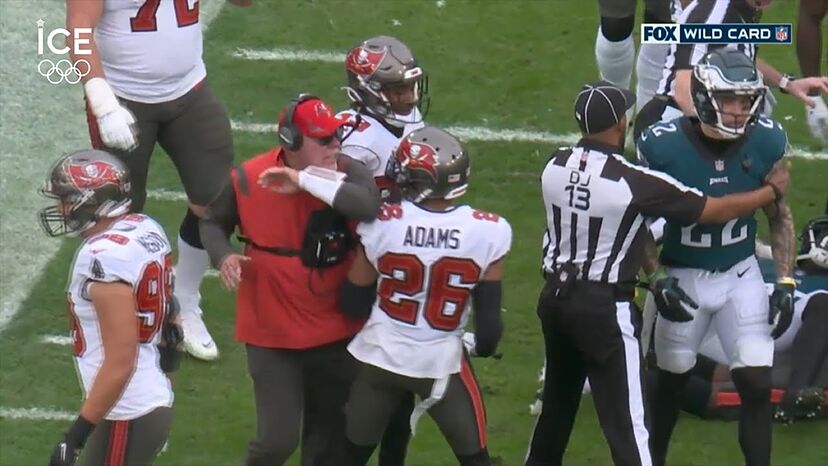
Head Coach Lance Leipold Could No Longer Tolerate It Anymore.
In the high-stakes world of college football, patience can be a rare commodity. For Lance Leipold, the head coach of the Kansas Jayhawks, that patience has been tested repeatedly over the past few seasons.
A man known for his composure and strategic acumen, Leipold recently reached a breaking point that could redefine the trajectory of his coaching career and the future of Kansas football.
Lance Leipold’s journey to Kansas has been marked by impressive accomplishments. Before joining the Jayhawks, Leipold built a formidable reputation at the University of Wisconsin-Whitewater, where he led the team to six national championships.
His transition to the Football Bowl Subdivision (FBS) with the University at Buffalo showcased his ability to turn struggling programs around. However, Kansas presented a unique set of challenges that have tested even Leipold’s renowned resilience.
Since taking the helm in 2021, Leipold has been working to restore Kansas football to its former glory. The Jayhawks, long mired in mediocrity and underperformance, have required a monumental effort to rebuild.
Leipold’s vision for the program included not just improving the team’s performance on the field but also fostering a winning culture that could endure long after his departure.
Despite Leipold’s efforts and incremental improvements, the pressure of constant underachievement and systemic issues within the program began to weigh heavily.
The turning point came recently when Leipold, a coach known for his measured approach, openly expressed his frustration. In a candid press conference, Leipold revealed that he could no longer tolerate the persistent problems that had been plaguing the team.
“I’ve always believed in being patient and persistent,” Leipold said. “But there comes a time when you have to confront the realities of the situation and make tough decisions. I’ve reached that point.”
The issues Leipold referred to were multifaceted. They included persistent injuries, a lack of depth in key positions, and ongoing challenges in recruiting top-tier talent.
These factors have compounded over time, making it increasingly difficult for Leipold to implement his game plan effectively.
Leipold’s decision to confront these issues head on has significant implications for the Jayhawks. His frustration is a reflection of deeper systemic problems within the program, and his willingness to address them is a sign of both his commitment to change and the seriousness of the situation.
In the short term, this might mean a shake up in the coaching staff, changes in training regimens, or alterations in recruitment strategies. Leipold’s move could also signal a broader re evaluation of the program’s priorities and goals.
For the players, it represents a pivotal moment that could either galvanize the team or expose deeper cracks in the foundation.
For Lance Leipold, the challenge now is to channel his frustration into productive change. His reputation as a transformative coach is on the line, and his response to this crisis will likely define his tenure at Kansas.
The Jayhawks’ faithful are watching closely, hoping that Leipold’s decisive actions will lead to tangible improvements on the field.
The coming months will be critical. Leipold’s ability to address the issues and rally his team will be tested as he navigates this challenging period. While the road ahead is uncertain, one thing is clear:
Lance Leipold is no longer willing to accept the status quo. His resolve to tackle the problems head on could very well mark a new era for Kansas football a chance for redemption and resurgence in a program long yearning for success.
Leave a Reply